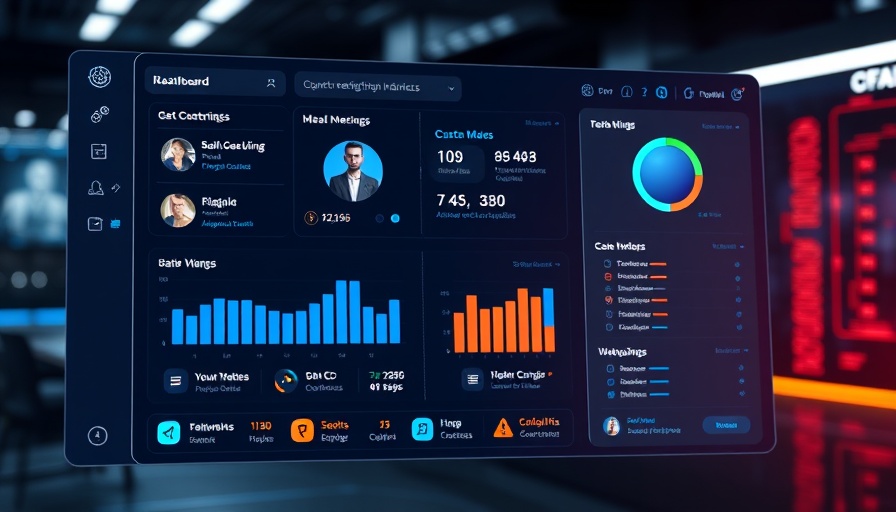
The Rise of AI in Business: Google Gemini and Microsoft Copilot
As artificial intelligence (AI) continues to embed itself in the fabric of modern business operations, Google has unveiled its latest offering: Gemini Enterprise. This new AI platform is positioned as a direct response to Microsoft Copilot and ChatGPT Enterprise, catering to companies seeking to streamline operations, enhance productivity, and automate routine tasks without the need for extensive coding knowledge.
Gemini Enterprise is designed to allow employees to interact directly with AI agents to access information, analyze data, and optimize workflows. With built-in agents like Deep Research and Code Assist, businesses can save time and resources while leveraging AI’s advanced capabilities. The platform's pricing structure features a starting point of $21 per user per month for smaller teams, escalating to $30 per user for larger organizations seeking additional features.
Why Choose AI? Understanding Industry Trends
As remote work becomes the norm and companies increasingly rely on digital tools, the need for efficient, integrated systems is more important than ever. Businesses are recognizing that AI tools like Gemini and Copilot can significantly enhance productivity by automating tasks typically handled by humans, thereby freeing up time for more strategic initiatives. Microsoft Copilot, well-integrated into Microsoft 365, supports a spectrum of tasks from drafting emails to analyzing data within established workflows. These platforms reflect a growing trend of using AI to provide immediate, context-aware assistance that leads to smarter decision-making.
Customization and Integration: Key Features of Gemini and Copilot
Gemini stands out with its capability for customization. Organizations can integrate third-party agents and tailor AI assistance to meet specific business needs. Meanwhile, Microsoft Copilot excels in its seamless integration with Microsoft applications, enabling efficient collaboration within familiar environments.
The competition between these platforms is fierce. Copilot showcases its extensive integration with Microsoft tools, making it a smart choice for organizations already embedded in that ecosystem. Conversely, Google’s Gemini focuses on offering flexibility, allowing businesses to leverage AI across various workflows and integrations without being confined to a single software suite.
Understanding User Needs in AI Solutions
Choosing between Gemini and Copilot ultimately depends on the existing infrastructure and requirements of the organization. Businesses heavily invested in Microsoft 365 may find Copilot's deep integration markedly beneficial, while those open to multi-platform integration might favor Gemini's versatility and innovative features, such as its advanced data analysis capabilities and AI-powered chat functions.
Looking Ahead: AI's Impact on Workplace Dynamics
Experts suggest that using AI effectively can revolutionize the modern workplace, enhancing productivity while reducing the administrative burden on human workers. As increasingly sophisticated technologies continue to evolve, businesses must stay informed about the latest offerings from both Google and Microsoft. The decision to adopt platforms like Gemini Enterprise or Microsoft Copilot should be guided by careful consideration of which features align with their anticipated future needs and operational models.
Conclusion: Making Informed Decisions in AI Integration
In an age where digital transformation is critical, organizations have a unique opportunity to leverage AI as a tool for competitive advantage. By thoughtfully analyzing the strengths and potential drawbacks of each AI solution, businesses can pave the way for smarter, more efficient operations. As AI continues to develop and mature, the choices made today will significantly shape tomorrow's workplace dynamics.
 Add Row
Add Row  Add
Add 




Write A Comment